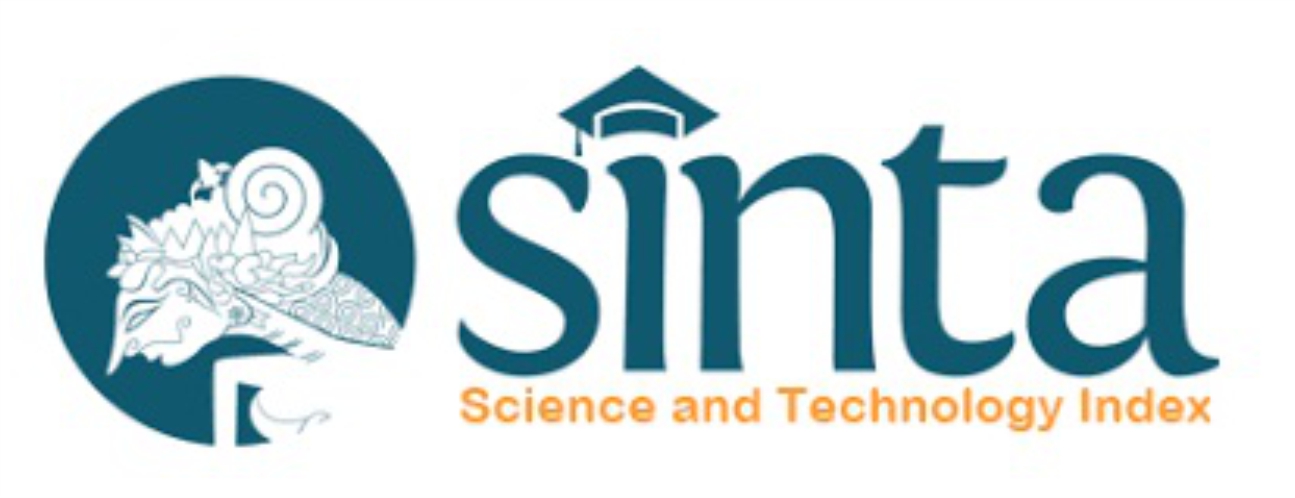- Focus and Scope
- Section Policies
- Peer Review Process
- Publication Frequency
- Open Access Policy
- Archiving
- Protection of Human Subject and Animal in Research Policy
- Informed Consent Policy
- Correction and Retraction Policy
- Publication Ethics
- Copyright and Licensing
Focus and Scope
J. Islamic Pharm. publishes research papers, short communications, reviews and notes dealing with entire aspects of Pharmaceutical sciences, including: Pharmaceutical Chemistry, Analytical Chemistry, Medicinal Chemistry, Natural Product Chemistry, Pharmaceutical Biology, Pharmaceutical Microbiology and Biotechnology, Pharmacology, Pharmacognosy, Computational Chemistry, Molecular Modeling, Drug Design, and Community and Clinical Pharmacy.
Section Policies
Original Research Article
Review Article
Case Report
Short Communication
Peer Review Process
This process conducts a double-blind peer-review system. It means that during peer review, reviewers will be able to access your manuscript securely using our online system whilst maintaining their anonymity.
Manuscripts are reviewed by at least two suitably qualified experts, and then all publication decisions are made by the Associate Editor of this journal, based on review’s results. The decisions could be:
- Accept outright
- Request a revision, where marked manuscripts sent back by editors to authors for refinement. Authors have to send back revised manuscripts within 1 week.
- Reject outright
When all editorial issues are resolved, your paper will be formally accepted for publication. After acceptance, authors are sent proofs of their manuscript, but only changes to the title, author list or scientific errors will be permitted. All corrections must be approved by the publishing team. J. Islamic Pharm. reserves the right to make the final decision about matters of style and the size of figures.
In cases of appeals, authors can take it during or after peer review process. Manuscripts that succeed to published cannot be rejected. Final decisions on appeals will be made by Editor in Chief with considerations of author and editor handling the manuscript. The manuscripts appealed cannot be reversed to resubmission.
Editorial board of J. Islamic Pharm. always strives to maintain the integrity of peer review while providing best services to authors through efficient peer review process.
Publication Frequency
J. Islamic Pharm. is published two times a year: in June (Issue 1) and December (Issue 2).
Open Access Policy
This journal is open access journal, which means that all content is freely available without charge to users or institutions.
J. Islamic Pharm. provides immediate open access to its content on the principle that making research freely available to the public supports a greater global exchange of knowledge. All articles published in the J. Islamic Pharm. are open access and free to access, as stated on the Budapest Open Access Initiative:
"By 'open access' to this literature, we mean its free availability on the public internet, permitting any users to read, download, copy, distribute, print, search, or link to the full texts of these articles, crawl them for indexing, pass them as data to software, or use them for any other lawful purpose, without financial, legal, or technical barriers other than those inseparable from gaining access to the internet itself. The only constraint on reproduction and distribution, and the only role for copyright in this domain, should be to give authors control over the integrity of their work and the right to be properly acknowledged and cited.”
Benefits of open access for the author include:
- Free access for all users worldwide
- Authors retain copyright to their work
- Increased visibility and readership
- Rapid publication
- No spatial constraints
However, works/articles in this journal are bound to Creative Commons Attribution-ShareAlike 4.0 International License.
Archiving
J. Islamic Pharm. utilizes LOCKSS and the Garba Rujukan Digital (Garuda) system from the Ministry of Research, Technology and Higher Education Indonesia, to create a distributed archiving system among participating libraries and permits those libraries to create permanent archives of the journal for purposes of preservation and restoration.
Protection of Human Subject and Animal in Research Policy
When reporting experiments on human subjects, authors should indicate whether the procedures followed were in accordance with the ethical standards of the responsible committee on human experimentation (institutional and national) and with the World Medical Association Declaration of Helsinki or International Ethical Guidelines for Health-related Research Involving Human. If doubt exists about whether the research was conducted in accordance with the said declaration, the authors must explain the rationale for their approach, and demonstrate that the institutional review body explicitly approved the doubtful aspects of the study.
When reporting experiments on animals, authors should be asked to indicate whether the institutional and national guidelines for the care and use of laboratory animals were followed. Further guidance on animal research ethics is available from the International Association of Veterinary Editors’ Consensus Author Guidelines on Animal Ethics and Welfare.
Informed Consent Policy
Patients have a right to privacy that should not be violated without informed consent. Identifying information, including names, initials, or hospital numbers, should not be published in written descriptions, photographs, or pedigrees unless the information is essential for scientific purposes and the patient (or parent or guardian) gives written informed consent for publication. Authors should disclose to these patients whether any potential identifiable material might be available via the internet as well as in print after publication. Nonessential identifying details should be omitted.
J. Islamic Pharm. decides that patient confidentiality is better guarded by having the authors archive the consent and instead providing us with a written statement in the manuscript attesting that they have received and archived written patient consent. When informed consent has been obtained, it should be indicated later in the published article.
Correction and Retraction Policy
The papers published in the J. Islamic Pharm. will be considered retractable if :
- They have clear evidence that the findings are unreliable, either as a result of misconduct (e.g. data fabrication) or honest error (e.g. miscalculation or experimental error)
- the findings have previously been published elsewhere without proper cross-referencing, permission or justification (i.e. cases of redundant publication)
- it constitutes plagiarism
- it reports unethical research
The mechanism of retraction follows the Retraction Guidelines of Committee on Publication Ethics (COPE)
Publication Ethics
J. Islamic Pharm. is a peer-reviewed journal. This journal follows guidelines from Committee on Publication Ethics (COPE) facing all aspects of publication ethics and, in particular, how to handle cases of research and publication misconduct. This statement clarifies ethical behaviour of all parties involved in the act of publishing an article in this journal, including the author, the Editor-in-Chief, the Editorial Board, the peer-review and the publisher (Universitas Islam Negeri Maulana Malik Ibrahim Malang). J. Islamic Pharm. are dedicated to following best practices on ethical matters, errors and retractions. The prevention of publication malpractice is one of the important responsibilities of the editorial board. Any kind of unethical behavior is not acceptable, and the journals do not tolerate plagiarism in any ways.
J. Islamic Pharm. adapts COPE to meet high quality standard of ethics for publisher, editors, authors, and reviewers. As an essential issue, publication ethics needs to be explained clearly to improve the quality of the research worldwide. In this part, we explain the standard for editors, authors, and reviewers.
For Editors
- Based on the review report of the editorial review board, the editor can accept, reject, or request modifications to the manuscript.
- Editors should be responsible for every articles published in J. Islamic Pharm.
- The editors may communicate with other editors or reviewers in making the final decision.
- An editor has to evaluate the manuscript objectively for publication, judging each on its quality without looking to nationality, ethnicity, political beliefs, race, religion, gender, seniority, or institutional affiliation of the authors. He/she should decline his/her assignment when there is a potential of conflict of interest.
- Editors need to ensure the document sent to the reviewer does not contain the information of the author, to conduct the double-blind-peer-reviewed process
- Editor's decision should be informed to authors accompanied by reviewer's comments unless they contain offensive or libelous remarks.
- Editors should respect requests from authors that an individual should not review the submission, if these are well-reasoned and practicable.
- Editors and all staffs should guarantee the confidentiality of the submitted manuscript.
- Editors will be guided by COPE flowcharts if there is a suspected misconduct or disputed authorship.
For Reviewers
- Reviewers need to comment on ethical questions and possible research and publication misconduct.
- Reviewers will do the work in timely manner and should notify editor if they can not complete the work.
- Reviewers need to keep the confidentiality of the manuscript.
- Reviewers should not accept to review the manuscripts in which there is potential conflict of interest between them and any of the authors.
For Authors
- Author(s) affirm that the material has not been previously published and that they have not transferred elsewhere any rights to the article.
- Author(s) should ensure the originality of the work and they have properly cited other's work in accordance of the references format.
- Author(s) should not engage in plagiarism nor self-plagiarism.
- Author(s) should ensure that they follow the authorship criteria that are taken from J. Islamic Pharm. that is explained in Author Guideline.
- Authors should not submit the same manuscript to more than one journal concurrently. It is also expected that the author will not publish redundant manuscripts or manuscripts describing the same research in more than one journal.
- Authorship should be limited to those who have made a significant contribution to conception, design, execution or interpretation of the reported study. Others who have made significant contribution must be listed as co-authors. Authors also ensure that all the authors have seen and agreed to the submitted version of the manuscript and their inclusion of names as co-authors.
- The author(s) have not suggested any personal information that may make the identity of the patient recognizable in any forms of description part, photograph or pedigree.
- Author(s) should give the editor the real objective data and details of the work, if there are suspicions of data falsification or fabrication.
- If at any point of time, the author(s) discovers a significant error or inaccuracy in submitted manuscript, then the error or inaccuracy must be reported to the editor.
- Authors of the journal should clarify everything that may cause conflict of interests such as work, research expenses, consultant expenses, and intellectual property on the document of J. Islamic Pharm. form disclosure.
Copyright and Licensing
This work is licensed under a Creative Commons Attribution-ShareAlike 4.0 International License.
All authors who submit articles to the J. Islamic Pharm. agree to the transfer of copyright to the journal by submitting a Copyright Transfer Agreement at the same time as the article submission process.
Authors who publish in this journal agree to the following terms:
- Copyright of all published articles is transferred to the J. Islamic Pharm.
- The author grants the journal the right of first publication with the work simultaneously licensed under a Creative Commons Attribution License that allows others to share work with an acknowledgment of the work authors and initial publications in this journal.
- Authors can enter into separate, additional contractual arrangements for the non-exclusive distribution of published articles (e.g., post-institutional repository) or publish them in a book, with acknowledgment of their initial publication in this journal.
- Authors are permitted and encouraged to post their work online (e.g., in institutional repositories or on their websites) before and during the submission process. This can lead to productive exchanges and earlier and greater citations of published work.
- The article and any associated published material are distributed under the Creative Commons Attribution-ShareAlike 4.0 International License.














